4 min read
Paint Perfection: The Crucial Role of Air Treatment in the Automotive Industry
Tsunami Team
:
Aug 9, 2023 11:54:12 AM
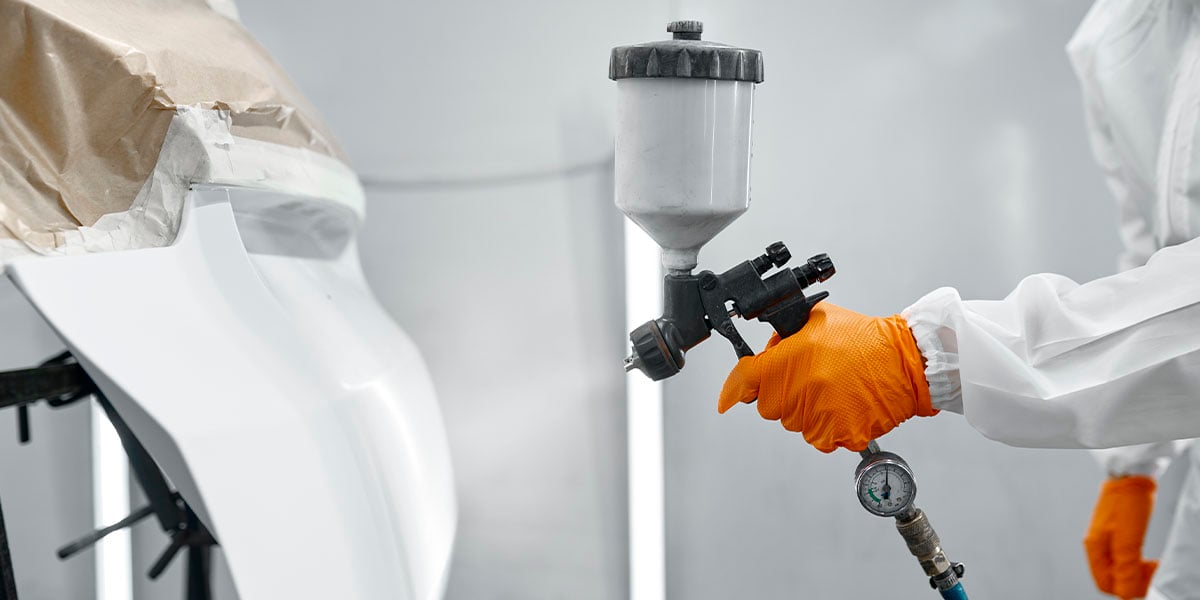
Precision, efficiency, and safety are paramount in the automotive industry. One aspect that plays a crucial role in ensuring these standards are met is air treatment.
Air filtration systems, air dryers, and breathing air systems work tirelessly to ensure the air in your plant is clean and safe, which directly impacts the quality of your products, the lifespan of your equipment, and the well-being of your workforce.
Here, we’ll discuss the importance of air treatment in the automotive industry, along with the role of different air treatment solutions.
Discussed in this article:
- Air Treatment in the Automotive Industry
- Understanding Air Treatment Solutions
- Air Treatment in the Booth vs the Shop
- Choosing the Right Solution
- Why Clean Air is Better
the Automotive Industry: The Importance of Air Treatment
Air treatment significantly influences your manufacturing process. The quality of air in your plant can make or break the quality of your products.
Poor air quality can also cause damage to your manufacturing equipment, resulting in frequent breakdowns and expensive repairs. Plus, product defects can mean additional quality control measures and rework, driving up your operational costs.

It’s not just about the products and equipment – the health and safety of your team are also at stake. Dust, fumes, and other airborne particles can pose serious health risks, including respiratory problems. That’s why it’s crucial to ensure the air in your plant is clean and safe.
Understanding Air Treatment Solutions
There are three main air treatment solutions: air filtration systems, air dryers, and breathing air systems. Each plays a unique role in maintaining the quality of air in your manufacturing environment.
Air Filtration Systems
Air filtration systems are your first line of defense in maintaining air quality. They pull in air, pass it through a series of filters, and outcomes air that’s free of dust, fumes, and other airborne contaminants.
In the automotive world, where precision is crucial, even the smallest particle can cause significant defects. That’s where air filtration systems come in, helping to maintain the high standards of quality expected in automotive manufacturing.
But their role doesn’t stop there. Air filtration systems also help extend the lifespan of your manufacturing equipment. By keeping the air clean, they prevent airborne particles from causing wear and tear on your machinery, saving you from frequent breakdowns and expensive repairs.
Air Dryers
Air dryers are unsung heroes when it comes to controlling moisture. Moisture can cause rust and corrosion in automotive parts and interfere with painting and coating processes, leading to poor finishes and adhesion problems.
Air dryers tackle this issue head-on by ensuring the air in your manufacturing environment is dry. They’re a key player in maintaining operational efficiency, preventing excess moisture from causing condensation in your machinery. With air dryers on your team, you can keep your machinery running smoothly, reduce downtime, and boost productivity.
Breathing Air Systems
Breathing air systems are more than just equipment in your plant - they’re a lifeline for your workers. These systems provide clean, breathable air in areas of the plant where workers are exposed to high levels of airborne contaminants.
In the automotive industry, workers come into contact with a variety of hazardous substances, such as fumes, solvents, and metal dust. Over time, exposure to these substances can lead to serious health problems, including respiratory illnesses.
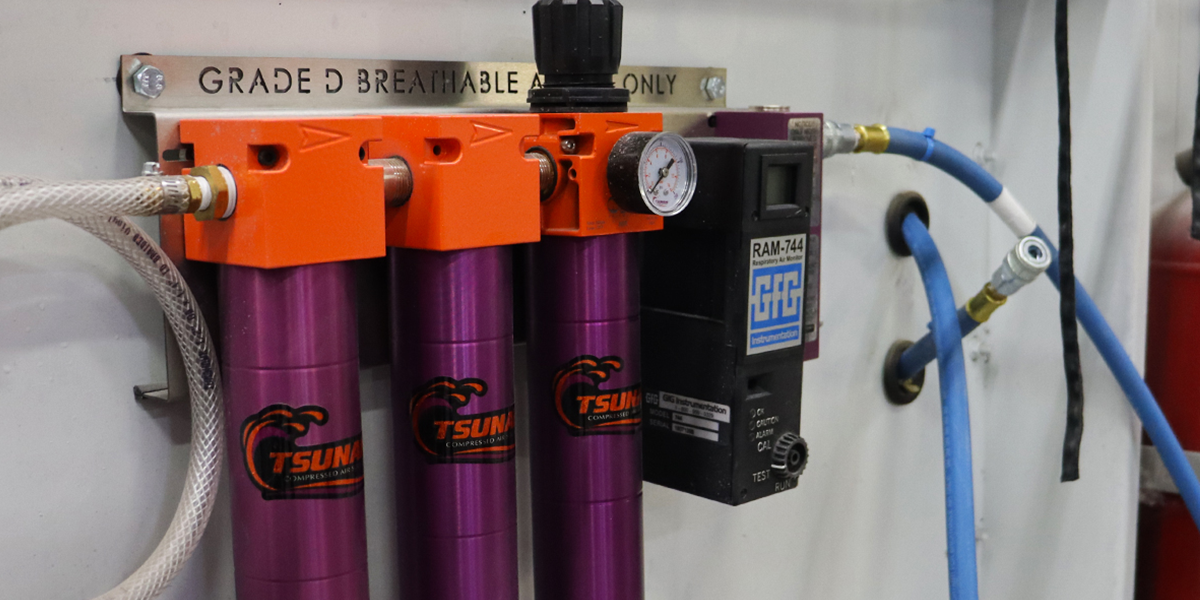
Breathing air standards, such as those set by the Occupational Safety and Health Administration (OSHA), specify the quality of air that workers must be provided in environments where respiratory hazards exist. These standards cover aspects like oxygen content, and permissible levels of contaminants, ensuring the air workers breathe is safe.
Breathing air systems help meet these standards by removing contaminants from the air. They not only protect workers’ health but also ensure you’re complying with occupational safety regulations.
The benefits don’t stop at safety and compliance – providing clean, breathable air also contributes to a more comfortable working environment. Workers who aren’t worried about air quality can focus better on their tasks, boosting productivity and morale.
Air Treatment Needs: In the Booth vs the Shop
Air treatment is not a one-size-all fits situation. Different areas of your manufacturing plant have unique needs, especially when you compare the booth - the heart of painting, coating, and other finishing processes - with the rest of the shop.
Any contaminants or excess moisture in the air can interfere with finishing processes and lead to defects or subpar finishes. That’s why you need high-efficiency air filtration systems and air dryers in the booth to ensure the air is clean and dry.
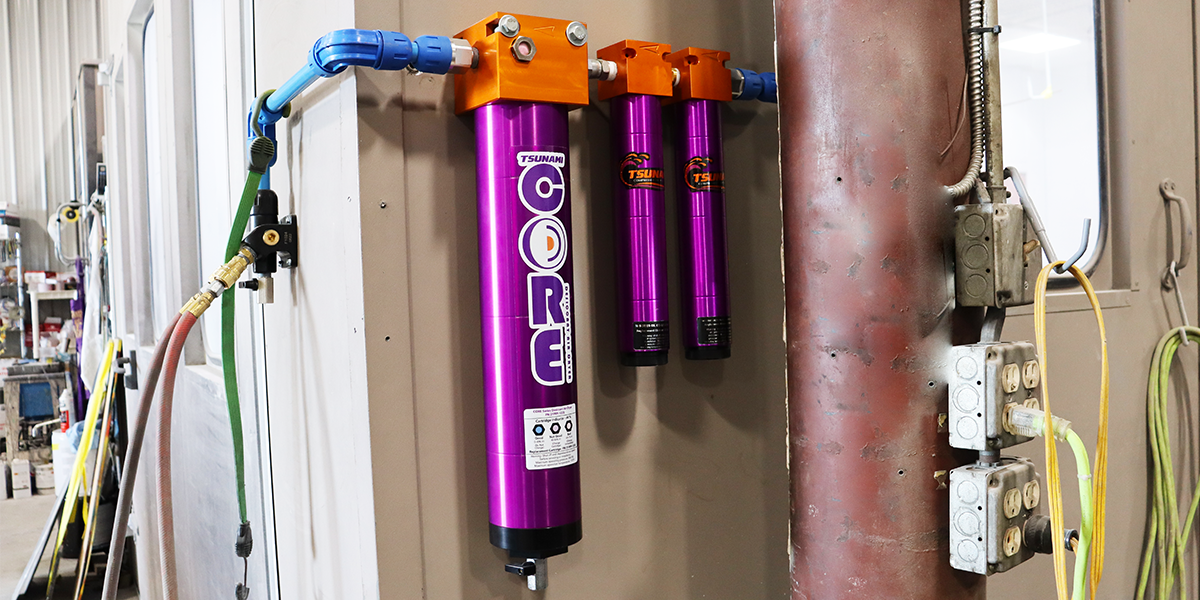
Let’s not forget about air systems - they’re crucial in the booth to protect your workers from exposure to paint fumes and other hazardous substances.
Now let’s step out of the booth and into the rest of the shop. Here, air filtration and drying are still important, but the requirements might not be as stringent. However, the need for breathing air systems remains high, especially in areas where workers are exposed to dust, fumes, or other airborne contaminants.
Understanding these different needs is important when choosing and implementing air treatment solutions. In most cases, separate systems are needed for the booth and the rest of the shop to adequately address these distinct requirements.
Choosing the Right Air Treatment Solutions
Choosing the right air treatment solutions for your operation involves considering several factors, including the size of your manufacturing plant, the specific manufacturing processes you use, and the local climate, among others.
The size of your plant can influence the capacity of the air treatment systems you need. Larger plants may require more powerful systems or multiple units to effectively treat the air.
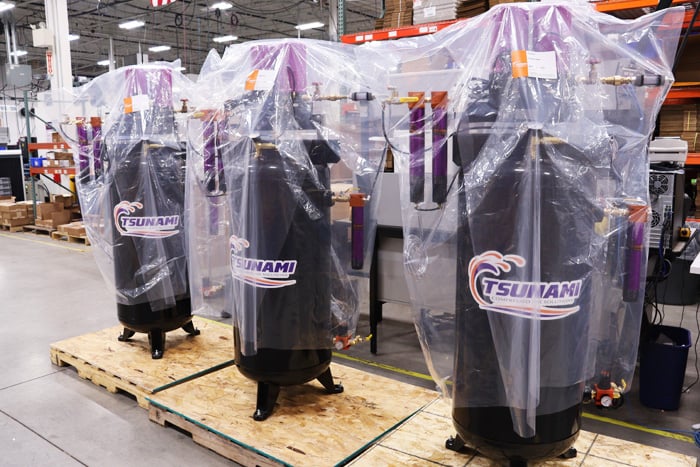
The specific processes you use can also influence your air treatment needs. For instance, if your operations involve a lot of painting or coating, you’ll need high-efficiency air filtration systems and air dryers to maintain air quality in your booths.
The local climate can also affect your air treatment needs. In humid climates, for instance, air dryers are particularly important to prevent moisture-related issues.
Here’s the good news - you don’t have to figure this out on your own. We offer a range of air filtration systems, air dryers, and breathing air systems, and our experts can guide you in choosing and implementing the right solutions for your specific needs.
Driving Towards Cleaner Air: The Final Word
Air treatment plays an essential role in the automotive industry, impacting product quality, worker health and safety, and operational efficiency. By understanding the importance of air treatment and the role of different air treatment solutions, you can make informed decisions to meet your specific air quality needs.
Whether you need high-efficiency air filtration systems for your booths, robust air dryers to combat humidity, or reliable breathing air systems to protect your workers, we’re here to help.
Contact us today for more information about our air treatment solutions and how we can help you maintain optimal air quality in your automotive manufacturing plant.
